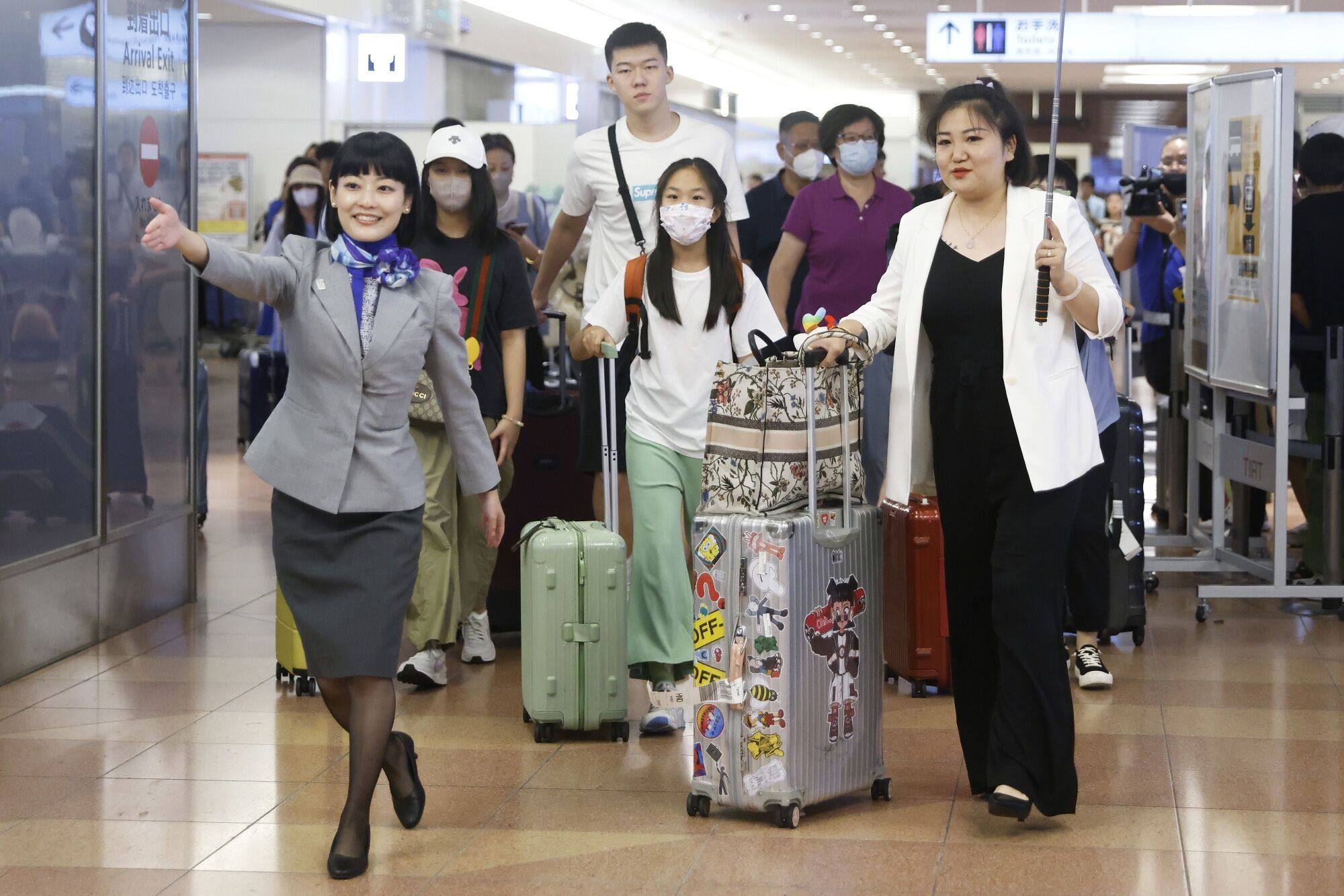Japan to require visitors from China test negative for tuberculosis amid uptick in imported cases
[ad_1]
They cautioned, however, that the new requirements had to be clearly explained to the countries affected as misleading media reports or comments on social media could stir animosity at a time when national feelings were already running high over political and historical tensions.
The new requirement was confirmed by Japanese health minister Keizo Takemi in a November 16 meeting of a government panel on health and is the result of increasing reports of people with tuberculosis entering Japan. The system is expected to be implemented next year.
Of the roughly 19.8 million visitors to Japan in the first 10 months of the year, some 320,000 tourists came from mainland China, and roughly 150,000 arrived from Hong Kong, according to Japan’s National Tourism Organization.

By comparison, mainland China has a rate of 52 cases per 100,000 people, according to World Health Organization data.
Hong Kong reported 50.13 cases per 100,000 people in 2021, the last time the Centre for Health has statistics for a full year.
“Domestically, the number of cases is going down but we are seeing an increase in cases being detected in people who are arriving from overseas,” said Kazuhiro Tateda, president of the Japan Association of Infectious Diseases.
TB firmly on rise after years of decline, WHO says
TB firmly on rise after years of decline, WHO says
According to government figures, nearly 12 per cent of new cases are from abroad and that percentage is gradually rising.
“TB is a larger problem in the countries identified by the government for this new requirement, along with syphilis, which is also becoming a serious problem among people entering Japan from other Asian countries,” Tateda told This Week in Asia.
Japanese health authorities say there have been more than 10,000 cases of syphilis a year in recent years. As of October 29, there had already been a record 12,000 cases reported across the country, the fastest rate of increase since comparable data first became available in 1999. There is no suggestion that the Japanese government is planning to start screening foreign visitors for syphilis as part of the visa application process.
It is of course possible that it could be used in some places to whip up propaganda and accuse Japan of trying to discriminate
Tateda said the government’s new tuberculosis test requirement was similar to those enforced by other countries and, given the potential impact of the illness if it began to spread freely in the general population, the policy was a “legitimate and reasonable requirement”.
Citizens arriving from the six designated countries will be required to undergo a TB test at a medical facility approved by the Japanese government as part of the visa application process. If a negative test result cannot be provided, then a visa will not be issued.
According to Japanese
Globally, an estimated 1.3 million people died of tuberculosis last year, making it the second-most infectious killer after HIV/Aids, according to the WHO.
Japan gets rude reminder of evils of overtourism as visitors return en masse
Japan gets rude reminder of evils of overtourism as visitors return en masse
Ashley Harvey, a travel marketing analyst who has worked in Japan’s travel sector for more than 15 years, said the requirement was unlikely to have much impact on the industry as it was a common requirement in other countries, involved a relatively simple procedure and was only required for those planning to stay for three months or longer.
“In the circumstances it seems a very logical and sensible precaution for Japan to be taking and I cannot see this having any effect on inbound tourism, although it is of course possible that it could be used in some places to whip up propaganda and accuse Japan of trying to discriminate against certain countries,” he said.
“But even if that did happen, I can only think that any impact would be a brief blip.”
[ad_2]
Source link

